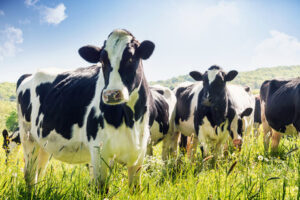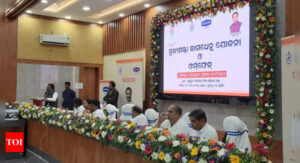The government on Monday (February 3) introduced a Bill to establish a new university, the Tribhuvan Sahkari University, on the campus of the Institute of Rural Management Anand (IRMA) in Gujarat.
The Tribhuvan Sahkari University Bill, 2025 was introduced by the Minister of State for Cooperation, Krishan Pal Gurjar, in Lok Sabha. The new university will be declared an institution of national importance.
What is the proposal?
At present, IRMA offers specialised courses in rural management. It also provides training in the development sector, including the cooperative sector.
The new university is aimed at imparting technical and management education and training in the co-operative sector. It also aims to promote co-operative research and development and to attain standards of global excellence.
Home minister Amit Shah, who is also in charge of the Ministry of Cooperation, had announced the government’s intention to establish a National Cooperative University back in 2021.

“We have received requests from four places to establish National Cooperative University… There is a need to establish a National Cooperative University,” Shah had said, addressing the National Cooperative Conference on September 25, 2021. Since then, he has spoken several times about his vision for a cooperative university.
While it will be the first university of its kind in India, several countries, such as Germany, Kenya, Colombia and Spain, have a dedicated university for cooperatives.
Story continues below this ad
How will the Tribhuvan Sahkari University be different from other universities?
The Bill’s Statement of Objects and Reasons says, “The University would be a specialised University, the first of its kind, in the co-operative sector, to impart and promote co-operative education, training, research and development and thereby strengthen the co-operative movement in the country.”
The university aims to establish sector-specific schools such as dairy, fishery, sugar, banking, rural credit, co-operative finance, co-operative marketing, co-operative accounting, co-operative laws, co-operative audit, multi-state co-operatives, etc., on its campus or in the states that are the leaders in the respective sectors.
The university will have at least 4-5 affiliated colleges or institutions in states with a high concentration of co-operative societies, and at least 1-2 affiliated colleges or institutions in states with fewer such societies.
It will also leverage existing mass e-learning platforms like SWAYAM, a government portal that offers online courses.
Why a cooperative university?
Story continues below this ad
The cooperative sector plays a significant role in the country’s economy. It accounts for 19 per cent of the agricultural credit availed by farmers, 35 per cent of fertiliser distribution, 25 per cent of fertiliser production, 31 per cent of sugar production, 10 per cent of the production and procurement of milk, 13 per cent of wheat procurement, 20 per cent of paddy procurement, and 21 per cent of fish production.
The government believes that the present education and training infrastructure in the co-operative sector is fragmented and inadequate to meet the demand for qualified manpower, and capacity building of existing employees, in co-operative societies.
“It also lacks standardisation and quality monitoring mechanisms. It is, therefore, essential that a comprehensive, integrated and standardised structure is created for education, training and research by establishing a national University to ensure a stable, adequate and quality supply of professionally qualified manpower for different categories of jobs in co-operatives such as managerial, supervisory, administrative, technical, operational, etc., and also address the long pending issue of capacity building of employees and board members in the co-operative sector in a pan-India and focused manner,” reads the Statement of Objects and Reasons of the Bill.
What is the IRMA?
The IRMA was founded by Dr. Verghese Kurien, the Father of White Revolution in India, in 1979. It was established with support from the National Dairy Development Board (NDDB), the Swiss Agency for Development Cooperation (SDC), the Government of India, government of Gujarat, and the erstwhile Indian Dairy Corporation. It is spread over a 60-acre campus.
Story continues below this ad
What will be IRMA’s role after the new university comes up?
The IRMA was registered as a society under the Societies Registration Act, 1860. Once the Tribhuvan Sahkari University Bill, 2025 is legislated into an Act and becomes effective, the IRMA society will be dissolved. The IRMA will become one of the schools of the new university and be declared a Centre of Excellence for rural management. Its autonomy and identity will be preserved within the institutional framework of the university.
Commenting on the government’s move, IRMA director Umakant Dash said, “It is a recognition of the IRMA’s contributions… It will provide us greater responsibility to serve the cooperative sector and thereby in realising the vision of Sahkar se samriddhi…It will be a big boost to the institute to showcase its work.”






